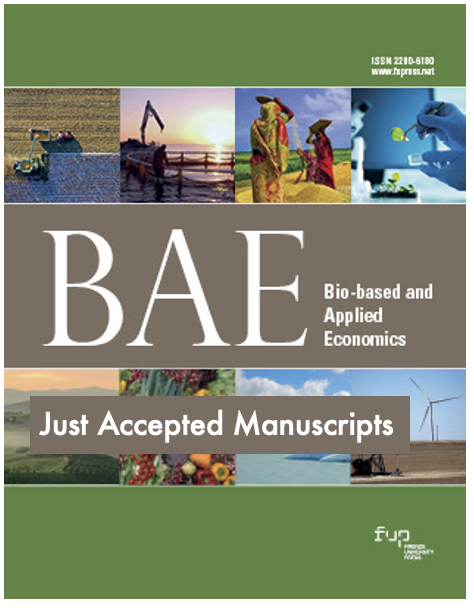Are Geographical Indications contributing to environmental conservation? The case of coffee industry and deforestation in Colombia
Published 2025-09-16
Keywords
- coffee,
- deforestation,
- geographical indications,
- colombia
How to Cite
Copyright (c) 2023 Nicola Caravaggio, Cristina Vaquero-Pineiro

This work is licensed under a Creative Commons Attribution 4.0 International License.
Abstract
Colombia accounts for more than 300 years of history in coffee production, for a leading position in the global market and for the majority of national land dedicated to this production. In the early 2000s, Café de Colombia was certified as Geographical Indication (GI) to differentiate it, preserve local traditional expertise and support sustainable farm practices. Nonetheless, would it have happened in the absence of GI certification in terms of environmental sustainability, and of forest cover change?
This paper estimates the effects of GI on deforestation by adopting the Synthetic Control Method on a country-level panel dataset over the 1992-2020 period. Results show that the GI quality schemes has brought changes in deforestation rates with a reduction in the short term (at most in the following seven years) but followed by a new uprising in the long term. The paper can help guide the implementation of development strategies addressing sustainability from different perspectives and the design of more resilient agricultural policies and forest entrepreneurship strategies.





